The team members of the SPACE Laboratory are listed here.
People
Professor Simone Servadio
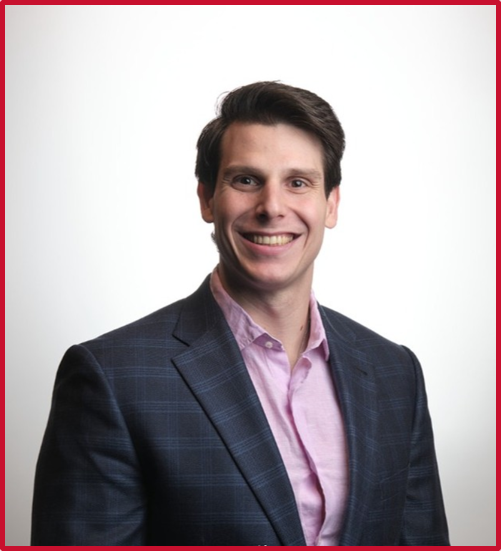
After graduating in Space Engineering in Milano, Italy, Dr. Servadio moved to Texas to get his Ph.D. in Aerospace Engineering at the University of Texas at Austin. After the diploma in less than 3 years, he joined Dr. Richard Linares at MIT as a Postdoctoral Associate as an ARC Lab member. In 2023, he accepted the position of Assistant Professor at Iowa State University. His research focuses on nonlinear filtering for GN&C applications, with a particular focus on relative pose estimation between satellites and orbit determination applications. Other interests include Estimation, Control, Orbit Determination, Space Domain Awareness, Active Debris Removal, Debris Tracking, Initial Orbit Determination, Koopman Operator, Filtering, Chaotic Systems, Relative Pose Estimation and Control, Uncertainty Propagation, Uncertainty Quantification, Hypothesis Testing, Spacecraft Guidance, Mission Design, Attitude Determination and Control System, and Perturbation Theory.
Doctorate Students
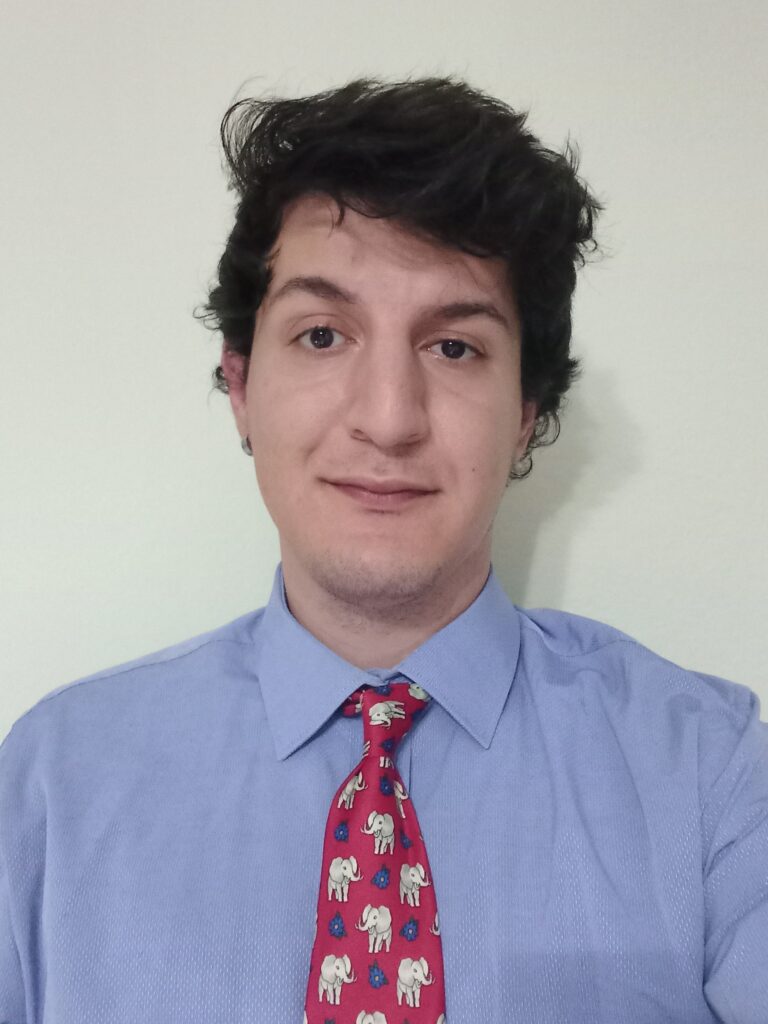
Batu Candan is a researcher at the Spacecraft Procedures for Autonomous Control and Estimation Laboratory (SPACE Lab) at Iowa State University, specializing in space debris removal using advanced AI technologies. He earned a Bachelor of Science in Mechanical Engineering with high honors from TOBB University of Economics and Technology in Ankara, Turkey, in 2018, followed by a Master of Science in Aerospace Engineering from Middle East Technical University in 2022. With four years of industry experience in guidance, navigation, and control of unmanned drones and spacecraft, his current work at SPACE Lab focuses on employing AI applications, particularly image processing and Kalman filtering, to develop effective solutions for maintaining the safety and sustainability of space operations.
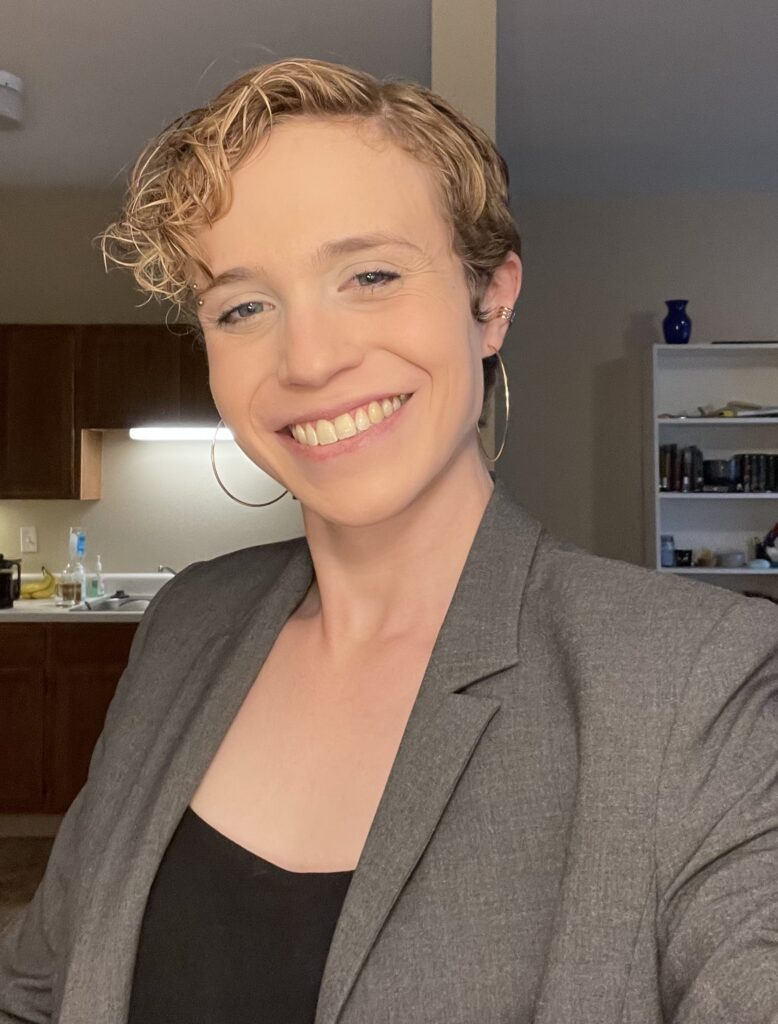
Erin Ashley received her bachelor’s degree in mechanical engineering from the University of Minnesota Duluth in 2020. Erin previously worked as a radio journalist and a power delivery engineering consultant in Madison, Wisconsin before beginning her PhD in aerospace engineering at Iowa State University in 2023. Erin is a current member of the Student Advisory Board for the Dean of Students, and has been recognized for her commitment to excellence in teaching. Her current work as part of SPACE Lab involves applying Kalman filtering techniques to LEO Source-Sink Evolutionary Models for debris and object estimation.
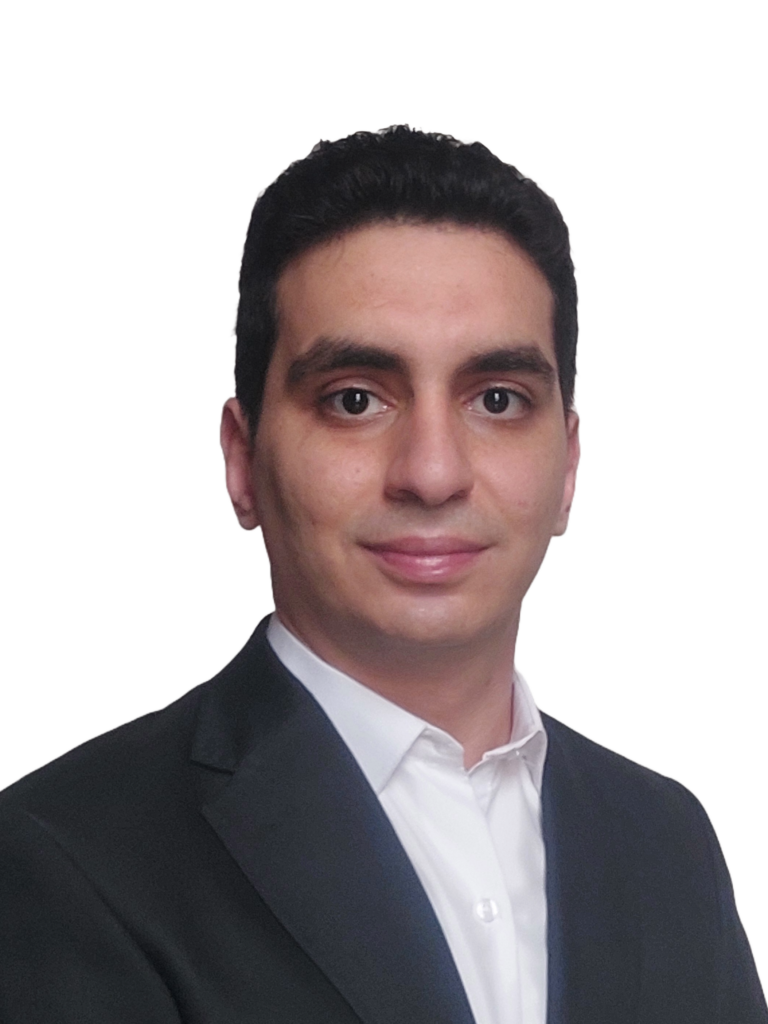
Mohammed Atallah received his bachelor’s degree in Aerospace Engineering from Cairo University, Egypt, in 2020, and his master’s degree in Mechanical Engineering from United Arab Emirates University, United Arab Emirates, in 2023. Currently, he is a graduate assistant in the Aerospace Engineering Department at Iowa State University, United States. His area of specialization includes system dynamics, guidance, navigation, and control. His research in the SPACE LAb focuses on new GN&C developments for Cislunal applications leveraging Differential Algebra.
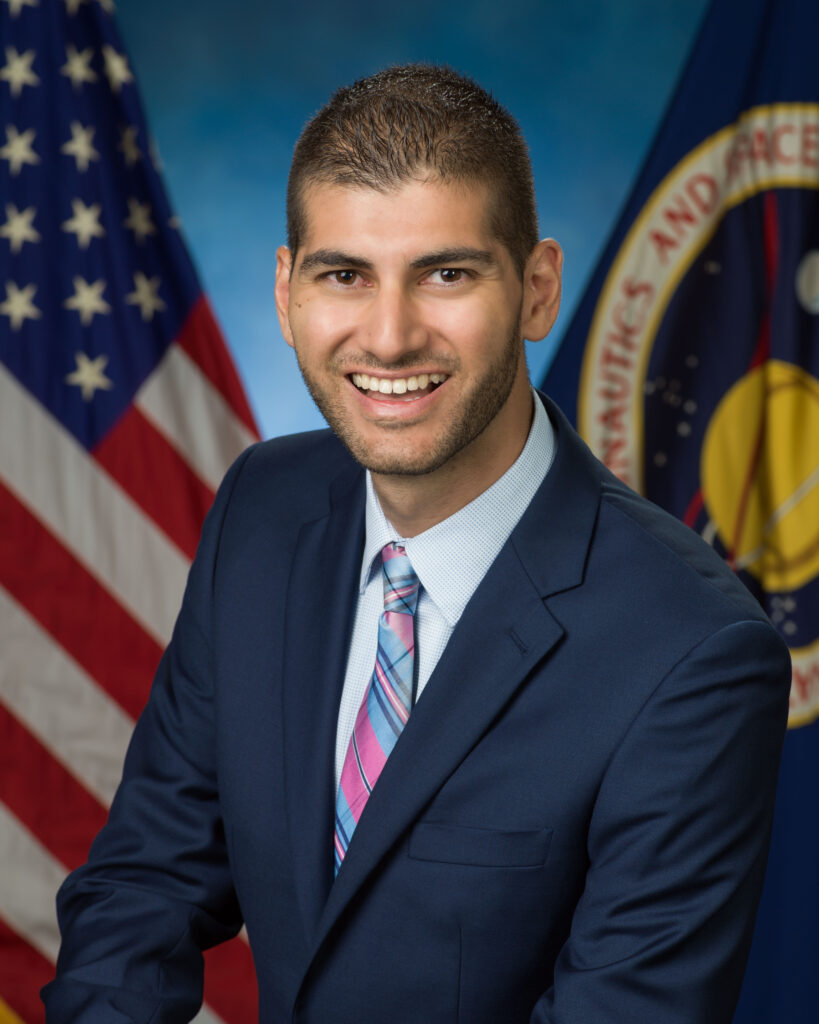
David Knapick, originally from Schenectady, NY, obtained a B.S. in Physics from Siena College in Loudonville, NY. At Siena College, he contributed to the National Science Foundation Firefly CubeSat project. After completing his undergraduate studies, he gained two years of experience at a.i. Solutions, Inc., where he supported the Earth Observing System (EOS) missions at NASA GSFC. Afterward, he worked for KBR, supporting the ISS at NASA JSC in the Visiting Vehicle Operations (VVO) group. During this time, David pursued and earned an M.S. in Aerospace Engineering Sciences from the University of Colorado Boulder in 2022, focusing on Astrodynamics. Additionally, David served as a volunteer firefighter in the SW Houston area. His research interests in the SPACE Lab include the application of evolutionary algorithms to solve interplanetary trajectory optimization and mission design problems.
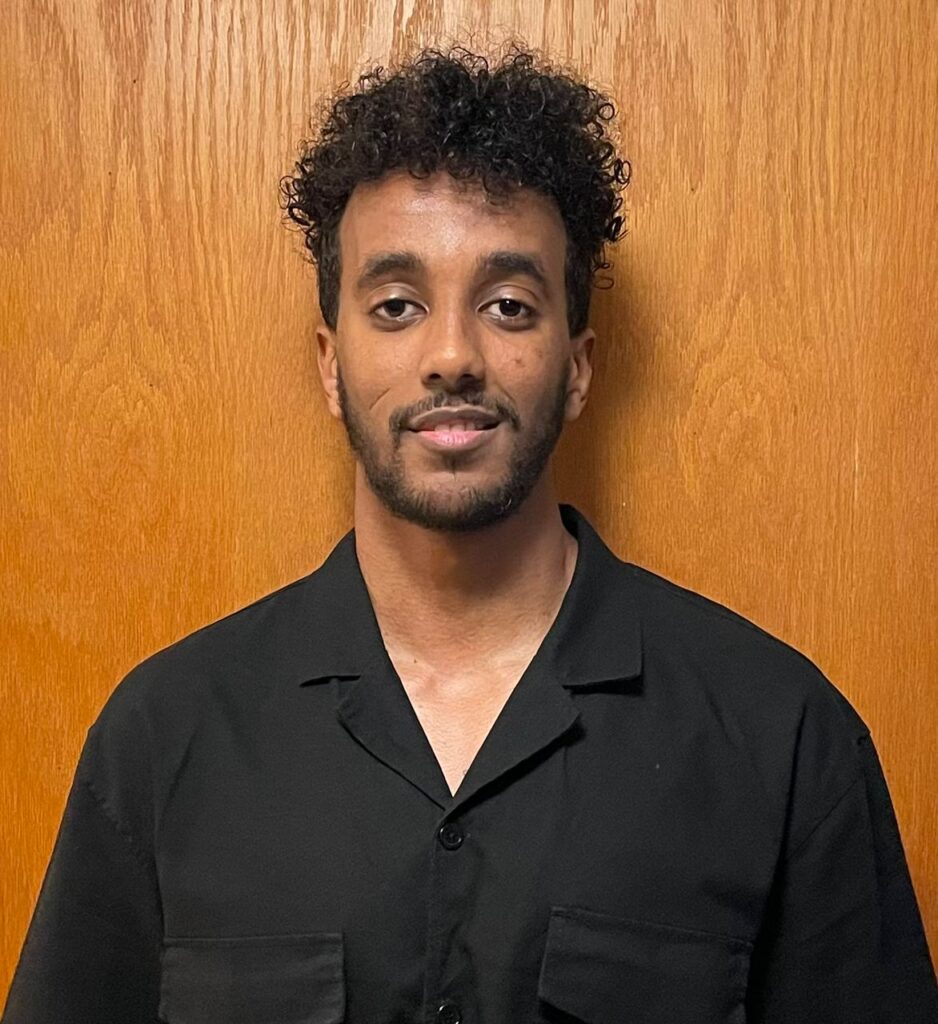
Yacob Biniam Medhin, originally from Asmara, Eritrea, worked as a graduate researcher at Khalifa University of Science and Technology, specializing in aerospace engineering, focusing on multifunctional composites and advanced navigation systems. He graduated in January 2024 with a Bachelor of Science in Aerospace Engineering. During his studies, Yacob gained significant experience through various roles, including as an undergraduate research assistant at Khalifa University, where he studied smart aerospace structures and developed additively manufactured hybrid structures for aerospace applications. His work has also extended to an internship at Yahsat Space Laboratory, where he conducted structural mechanical analysis on 6U CubeSats. In the SPACE Lab, he works on the MOCAT Monte Carlo model to analyze optimal policies for active debris removal with economic and political factors.
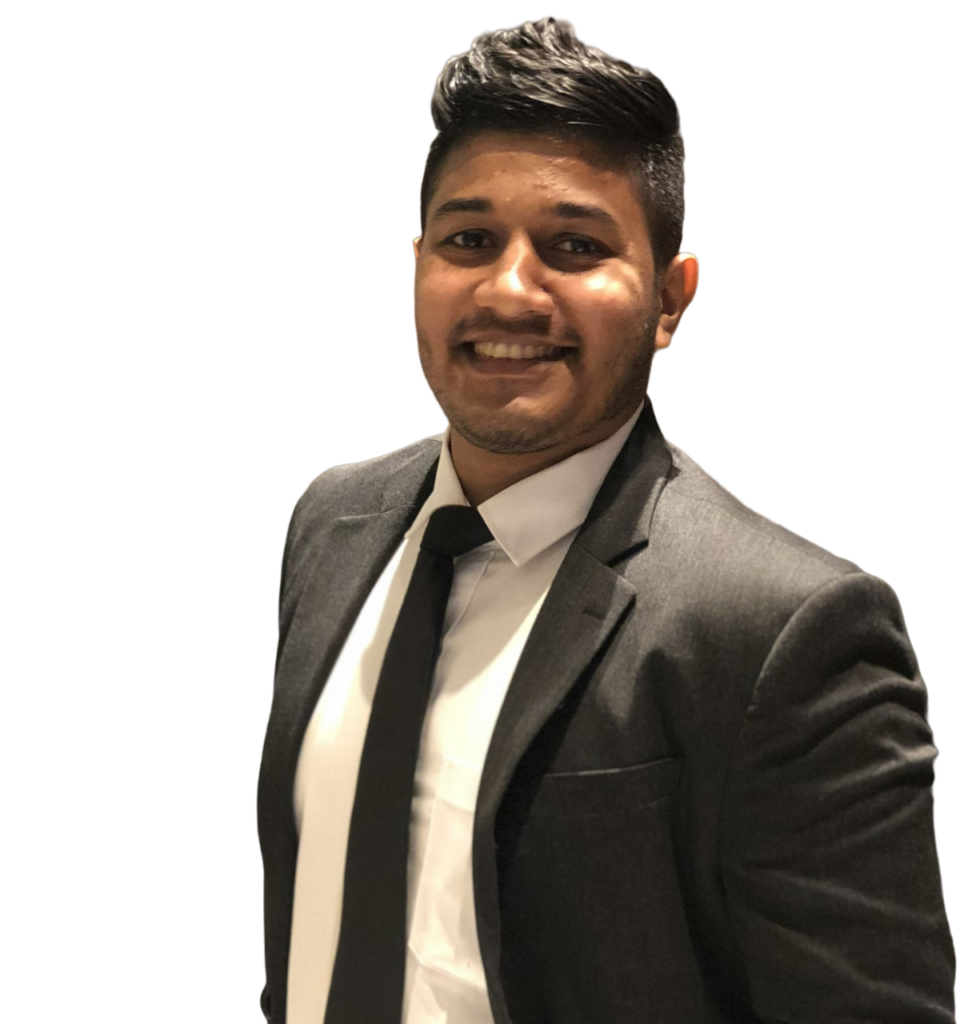
Ridma Ganganath, originally from Sri Lanka, is a researcher at the Spacecraft Procedures for Autonomous Control and Estimation Laboratory (SPACE Lab) at Iowa State University under Professor Simone Servadio. He obtained his B.Eng and M.Eng in Mechatronics Engineering from the University of Wolverhampton, United Kingdom, where he specialized in control systems. With a couple of years of industry and R&D experience, he was hired by the National University of Estonia (University of Tartu) as a scientist for pose estimation and control applications. He later began his graduate studies at Utah State University, USA, in the Aerospace Laboratory, where he specialized in optimization-based control and objective inference in dynamical games, particularly in the context of pursuit-evasion differential games towards aerospace applications. His current work as part of the SPACE Lab involves robust angles-only navigation with advanced Kalman estimation for spacecrafts.
Master Students
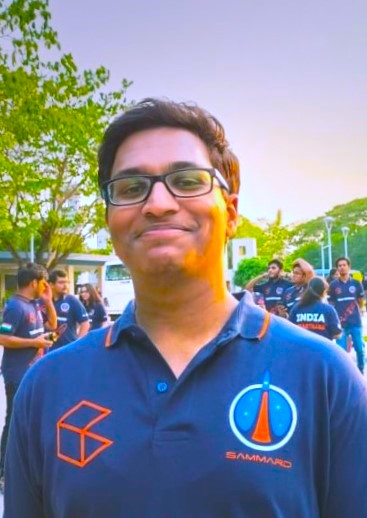
Chiran Binnu Cherian has been pursuing a Master’s degree in Aerospace Engineering since January 2024 and started working as a researcher at the SPACE Lab at Iowa State University in April 2024. He is now doing research on the development and improvement of Kalman Filters and Particle Filters in several application domains. In 2023, he obtained a Bachelor of Technology in Mechanical Engineering from Vellore Institute of Technology located in Vellore, India. He was a member of the University Rocket Team (Team Sammard) and won positions and certificates after being chosen as a finalist in the international intercollegiate CANSAT and Spaceport America Cup competitions, which were hosted by prominent aerospace giants like NASA and Lockheed Martin while holding the post of the head of the recovery department for the team. He is interested in a wide variety of topics, including the guidance, navigation, and control of moving vehicles, multi-body dynamics, material science, and finite element analysis.
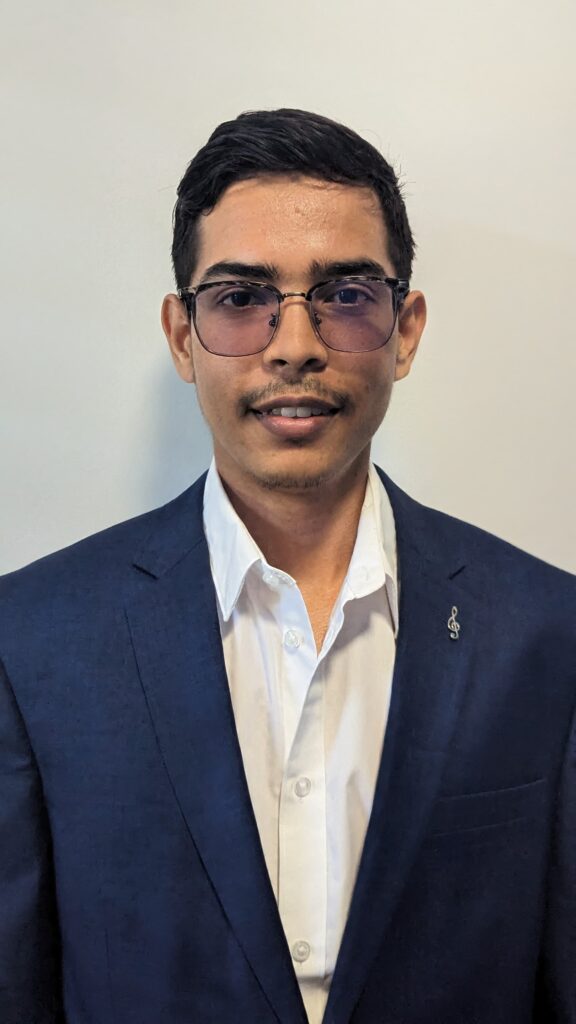
Lalit Deshmukh has been pursuing a Master’s in Space Engineering since September 2022 at the University of Pisa, Italy. He joined the SPACE Lab as a visiting scholar for his Master’s thesis at Iowa State University starting in August 2024. His thesis focuses on Maneuver Detection and Reachable Set estimating the possibility of satellite collisions in space using the Kalman filter. In 2021, he obtained a Bachelor of Technology in Aeronautical Engineering from the School of Aeronautics in Neemrana, India. For his final project, he worked on a “Missile Obstacle Avoidance Control System” and performed real-time simulations using FlightGear. During his Master’s program, he completed a group project on “Support to Human Activity from Earth-Moon L2 Point,” where he worked on thermal control, GNSS ground segment, and launcher selection. He is also interested in collision avoidance in space, active debris removal, autonomous satellite operations, and AI/ML for space applications.
Undergraduate Students
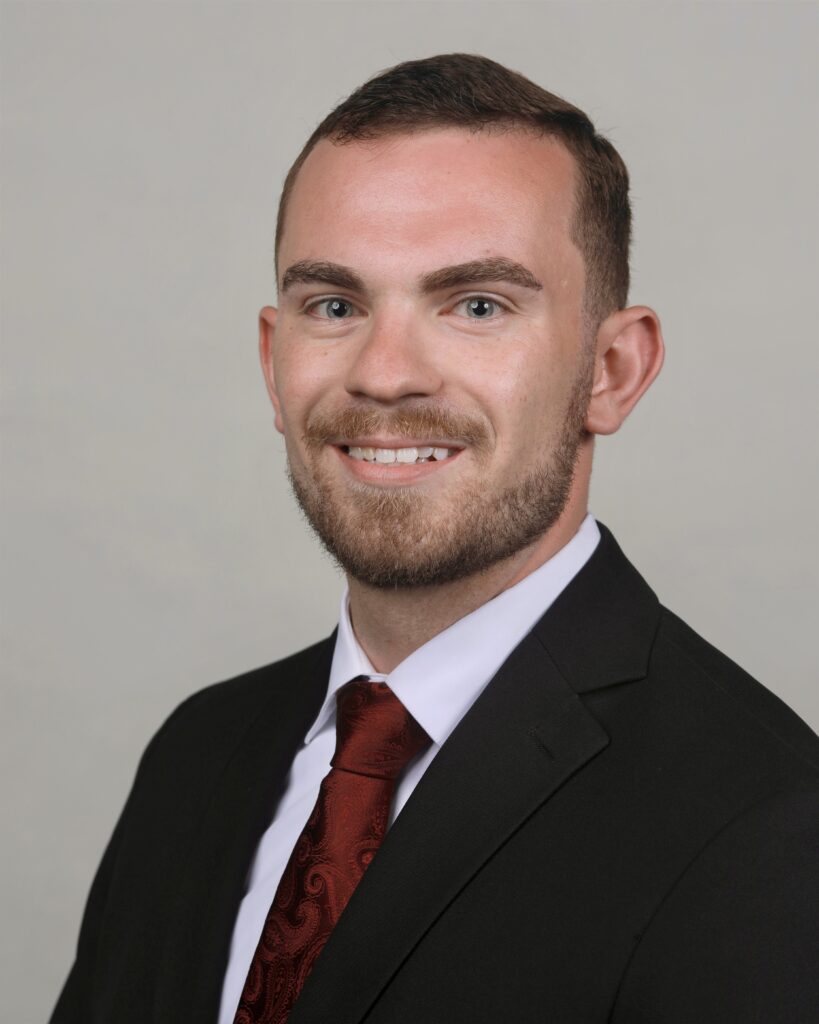
Samuel Hersom is a senior majoring in Aerospace Engineering and minoring in Nondestructive evaluation. He has done undergraduate research related to wind tunnel design and has been a member of the M2I Boeing Experimental Flight team. As a Boeing Intern, he will work with a Boeing engineering mentor and Dr. Servadio on research related to optimizing Earth-Moon transfers in the restricted Sun-Earth-Moon four-body model. He will focus on single/multiple shooting methods to determine optimal solutions.
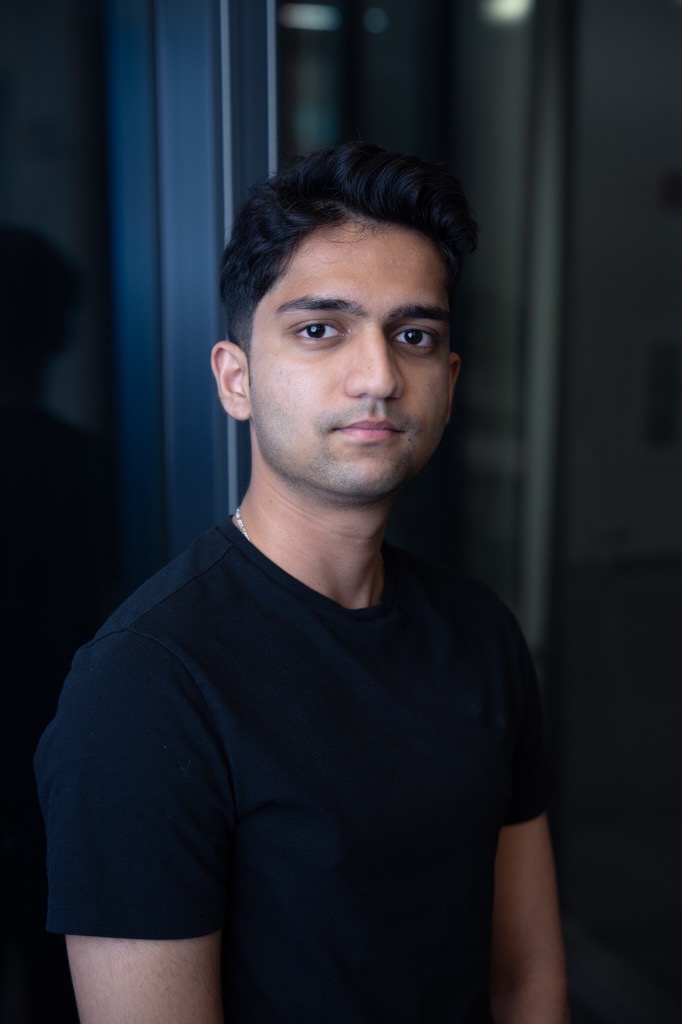
Sushant Chiramana is a senior majoring in Aerospace Engineering and minoring in Astronomy. As an undergraduate research student, he has been working under Dr. Simone Servadio since September 2023. His research with SpaceLab is helping to create a space debris calculator that works with the databases from different space organizations and displays histograms of the number of objects present in the Lower Earth Orbit. The calculator works with current and past data; eventually, we can work with predicted data.
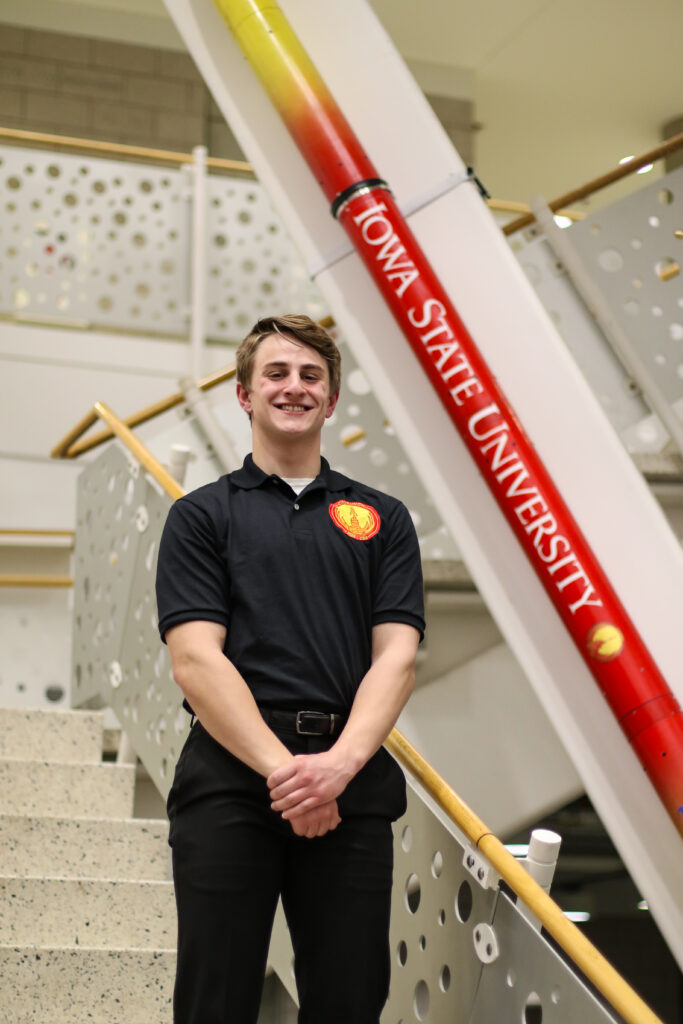
Braden Stock is currently a junior majoring in Aerospace Engineering and minoring in Computer Science and Non-Destructive Evaluation at Iowa State University. Braden began working with Dr. Servadio as a member of the SPACE Lab in the Fall of 2024. Much of the work that Braden has done involves applying a Long-Short Term Memory (LSTM) Recurrent Neural Network (RNN) to aid the MIT Orbital Capacity Analysis Tool (MOCAT). In the future, this recurrent neural network will be able to predict the growth of satellites and other space debris within Low Earth Orbit (LEO) according to the MOCAT. Braden has also been a member of the M2I Cy Launch team and the Aeronautical Innovative Research club on campus and was a previous intern at BAE Systems. His interests include spacecraft trajectory optimization, orbital mechanics, astrodynamics, spacecraft guidance and navigation, and multi-body dynamics.
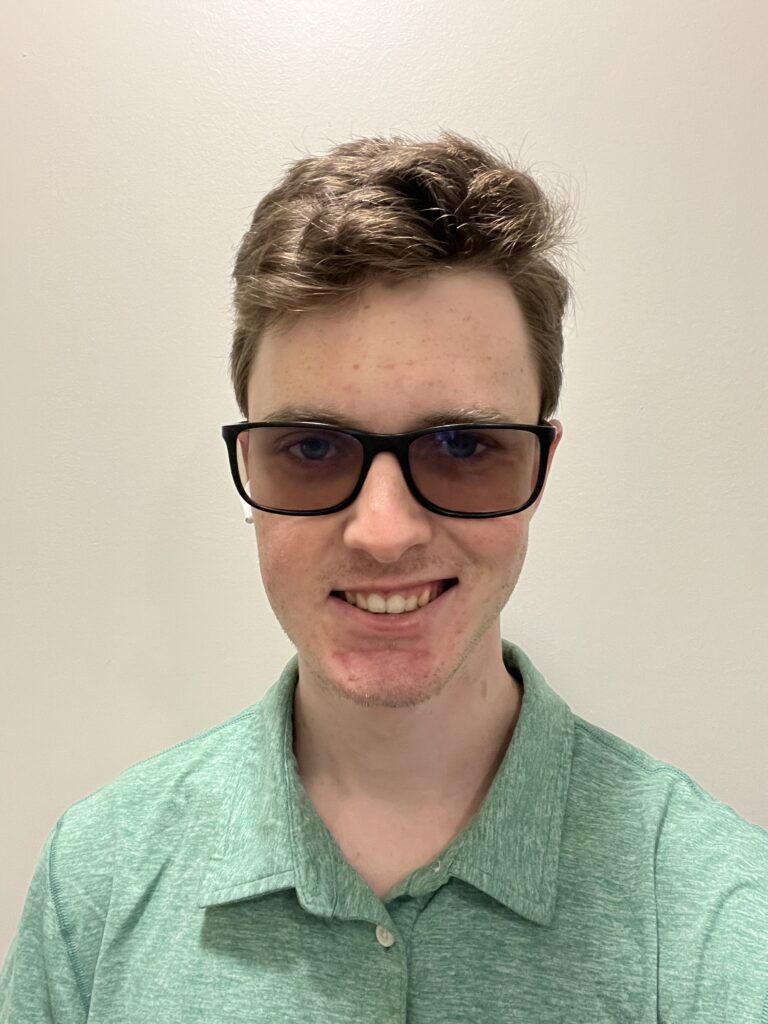
Maddox McCarthy is a Junior Majoring in Aerospace Engineering. Maddox started research under Dr. Servadio as an undergrad volunteer in Fall of 2024 and started official research as an undergrad assistant in Spring of 2025 under a NASA project. His work involves developing Low Earth Orbit population models for future projections using Sparse Identification of Non-linear DYnamics algorithm (SINDy) to assist in the continued development of the MIT Orbital Capacity Analysis Tool (MOCAT). In his time at Iowa State University, Maddox participated in the Aerospace Engineering Department Make 2 Innovate program as a member of the former Stellar team. He is interested in orbital mechanics and control systems on Spacecraft and Aircraft.
Former Undergraduate Research Assistants
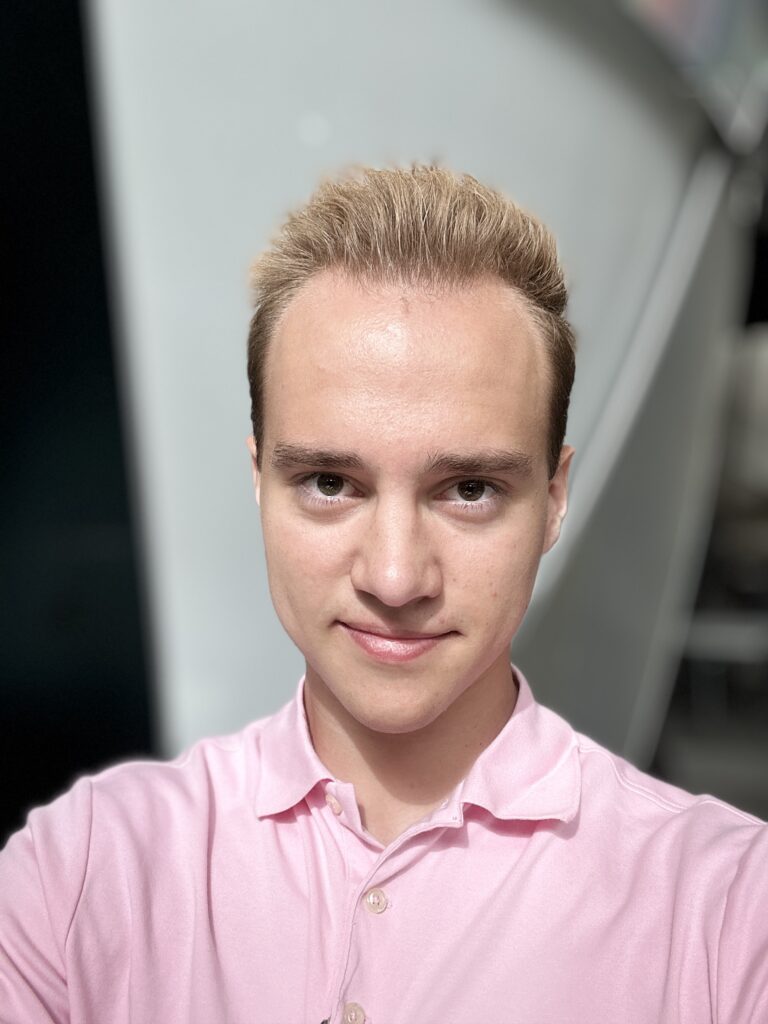
Samuel Mollenhauer is a concurrent master’s student in Aerospace Engineering at Iowa State University. His current work at SPACE Lab focuses on Neural networking and AI applications, predominantly for Kalman filtering and imaging solutions to create safer on-orbit environments. He also does physical model testing for AI applications in SPACE Lab and does additional research in the physics department at Iowa State University as a part of FERMILAB’s ANNIE experiment, as well as consulting work for UC Berkeley’s EOS experiment. His main research interests are spacecraft trajectory optimization, orbital navigation, engine design, and supersonics in aviation.
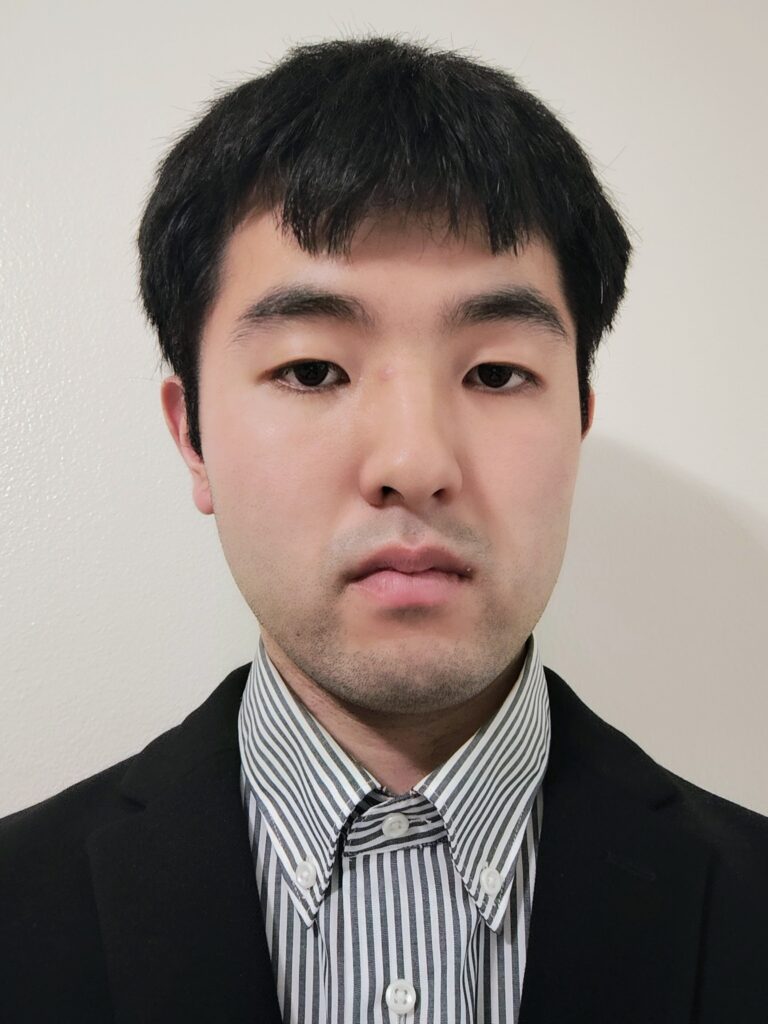
Jun Maruyama is a senior-year undergraduate student at ISU Aerospace. He graduated from Everett Community College in WA with an AS in Engineering. Before joining SPACE Lab, he researched CubeSat spacecraft design under Dr. Lee Dae-Young. He is developing a spacecraft attitude determination and control system in the SPACE Lab.
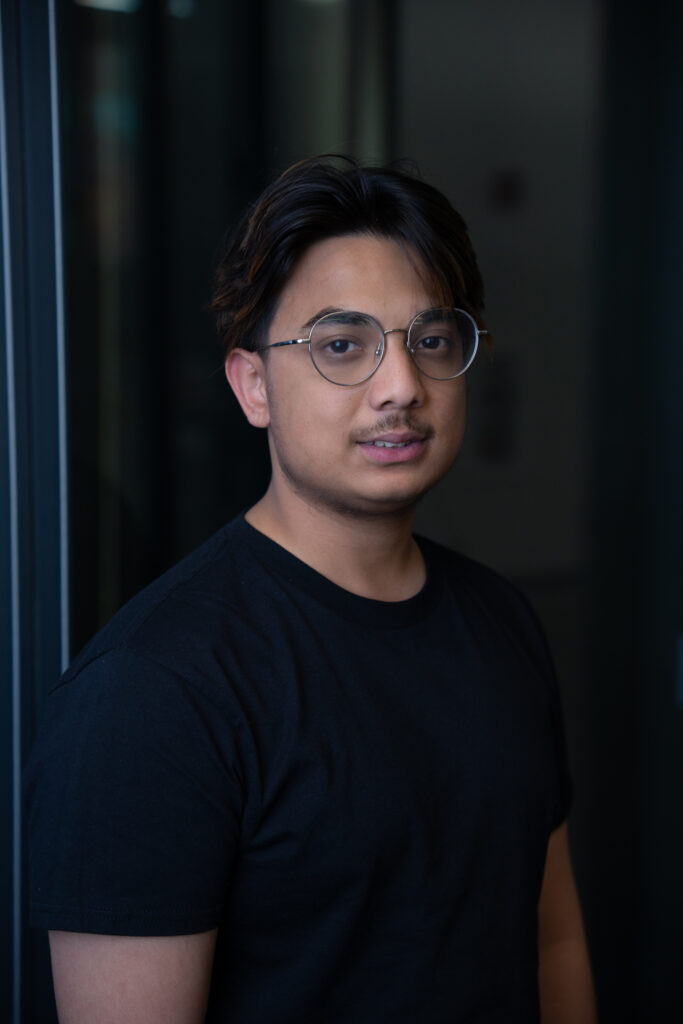
Jonak Bhagawati has worked with Professor Servadio since the fall of 2023. His research focused on developing a space debris population calculator that would act as a database to verify the MOCAT model developed by MIT that predicts the growth of space debris in LEO. He attended the NCUR (National Conference of Undergraduate Research) 2024, held in Long Beach, California. With countries launching hundreds of Satellites every year, it is important to take into consideration the consequences that this would have in the LEO and the measures we would need to take to counter the problem of space debris.
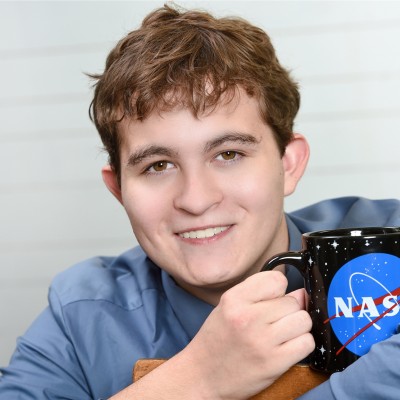
Andrew Leibold is an undergraduate senior in aerospace engineering. In his undergraduate studies, he has worked on wind tunnel projects, turbulence modeling, and drone dynamics for student organizations. He has a particular interest in spacecraft guidance, navigation, controls, and the dynamics that underlie the motion of spacecraft. He worked on shooting methods and algorithm implementation for 4 and 5 body systems.
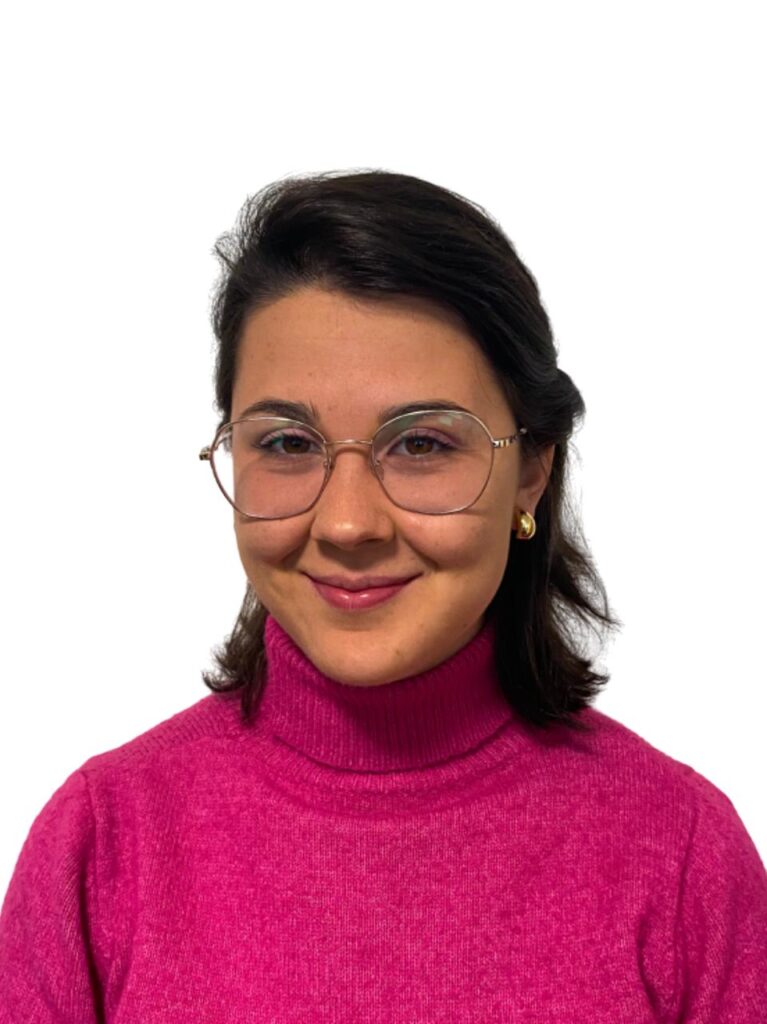
Carla Simon Sanz, a junior aerospace engineering student, is an undergraduate member of Dr. Servadio’s group, the Spacecraft Procedures for Autonomous Control and Estimation Laboratory (SPACE Lab). Carla specializes in statistical analysis, particularly in optimizing fitting parameters like normal and gamma distributions, while also conducting error computations. Her project focused on improving the MIT Orbital Capacity Analysis Tool (MOCAT) by integrating a Kalman filter step. This enhancement is expected to increase the accuracy of predicting the dynamic Low Earth Orbit (LEO) environment over time.
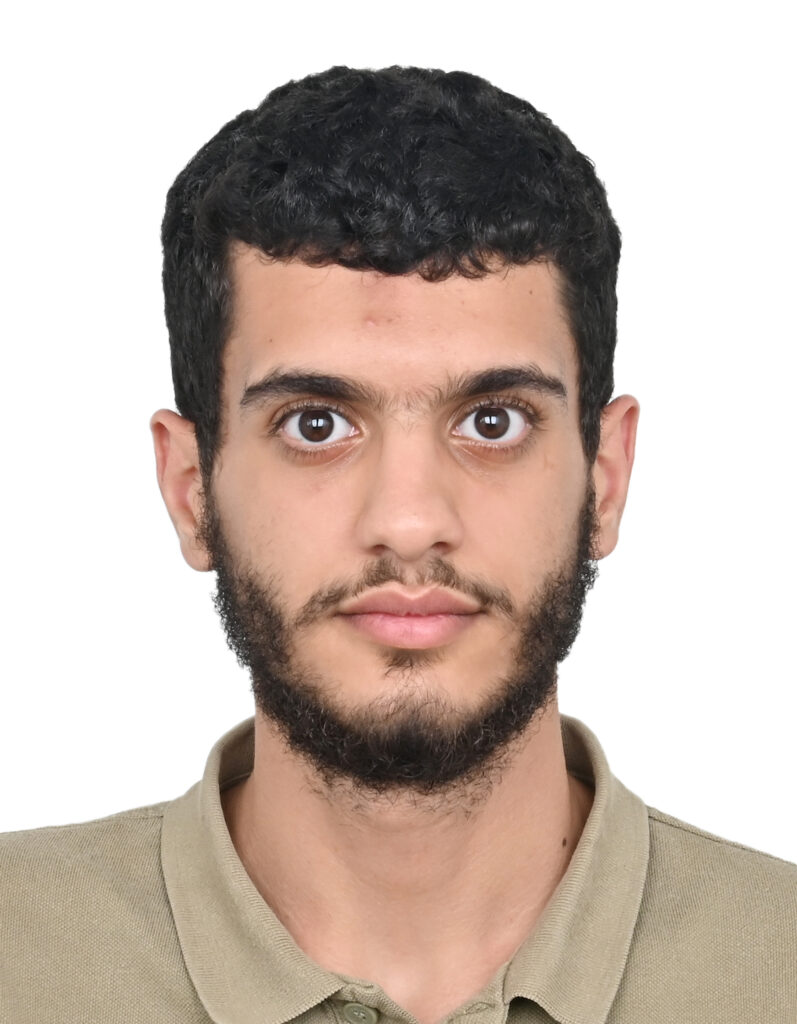
Qais Okasha is an upcoming senior in Aerospace Engineering with a soft spot for general dynamics and for love of astrodynamics and spacecraft dynamics. He is interested in the implementation of concepts of feedback and automatic control. His research focuses on Guidance Navigation and Control, orbit servicing, and relative satellite-to-satellite estimation and control.
